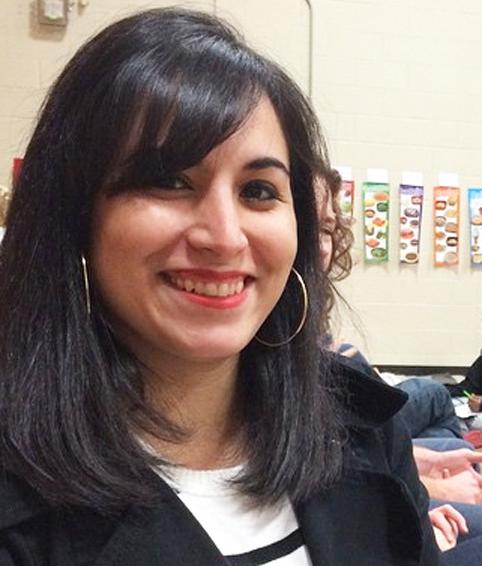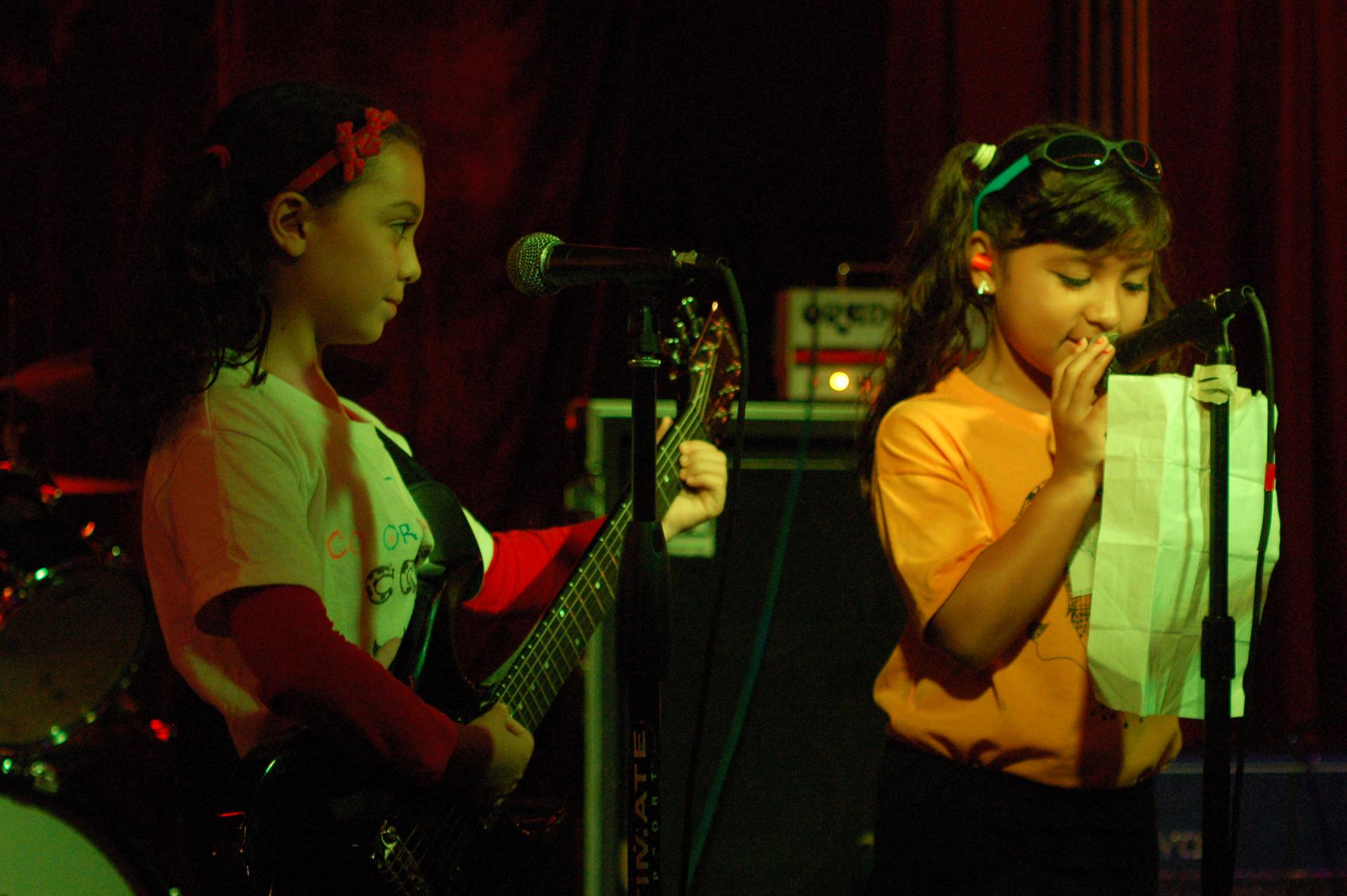‘Girls Rock Camp saved my life’
Girls Rock Jr. Showcase 2015
I didn’t mean to find myself in the middle of a revolution.
I had just finished grad school and was still relatively new to LA, looking for something to plug into and make some new friends. And I found it, standing in a sweltering classroom, listening to a band of 9- and 10-year-olds singing about how much they hated cockroaches over two chords they just learned. I had actually moved to LA to quit music. Instead, I rediscovered my passion and fell in love with a movement. Girls Rock Camp changed my life.
 For those who aren’t familiar, Girls Rock Camps are summer camps, generally for ages 7-17, where self-identified girls learn an instrument, form a band, write a song and play a show all in one week. They all share the aim of empowering girls through music education and performance. Through mentorship and social justice, Girls Rock Camps strive to create a global movement that amplifies the creative expression of girls, celebrates their formidable talents, and reinforces the essential value of their contributions to our collective culture.
For those who aren’t familiar, Girls Rock Camps are summer camps, generally for ages 7-17, where self-identified girls learn an instrument, form a band, write a song and play a show all in one week. They all share the aim of empowering girls through music education and performance. Through mentorship and social justice, Girls Rock Camps strive to create a global movement that amplifies the creative expression of girls, celebrates their formidable talents, and reinforces the essential value of their contributions to our collective culture.
The first Girls Rock Camp started in Portland, Oregon in 2001, and since then chapters have sprung up around the world like wildflowers, dotting the musical landscape with bright splashes of color and unbridled enthusiasm. I was part of a small group that established Rock ’n’ Roll Camp for Girls Los Angeles in 2010, and I’ve been a committed organizer in the movement ever since.
Teaching at Girls Rock is unlike teaching anywhere else. One of the first things that strikes campers when they arrive is our pedagogical approach; because of our roots in social justice we don’t adhere to traditional Western pedantic teaching methods. This is jarring to the new campers at first, they’re not quite sure what to make of the autonomy they are given to problem solve and create both individually and with their bandmates. They quickly rise to the occasion and gain an immense sense of pride over their decisions and creations.
Campers also a bit unsure of our (staff and volunteers) status as adults, which I can totally understand. I mean, I have spent the day in a pizza costume while performing impromptu country rap songs about panda bears (at campers’ request!) just to teach lessons about genre and the importance of communicating with your bandmates. I can see where they might be a little wary of whether or not we’re “real” grownups. But I also think our willingness to be vulnerable and silly and put it all out there for the sake of engaging the campers is part of the reason why they’re willing to take risks and try new things, too. How can I ask these things of them if I’m not willing to do the same?
Over the years, I’ve worked on songs and learning instruments with hundreds of girls at our camps. But Girls Rock Camps are about more than just learning riffs — they’re about learning how to be confident in who you are. All too often, girls are socialized to prioritize others' comfort or politeness at the expense of their own emotional or physical well being. We dedicate curriculum and time to challenge these narratives.
As an organizer, I have the ability and responsibility to make sure every camper that comes to Girls Rock programming feels that they see themselves reflected in adults they interact with, music they hear, and lessons they learn. I constantly strive to make our camps and activities accessible to every girl who wishes to participate
I’ve taught workshops on media literacy (remember that whole grad school thing? I might be using that degree after all!), women in music history, healthy relationships, communication styles, and gender and identity. These workshops give campers a safe space to voice their opinions and ideas on some serious topics that they rarely have explicitly addressed. By dedicating time to these conversations, campers are given the tools and language to navigate their daily experiences. When we have workshops on topics like communication styles and healthy relationships, they learn real applicable ways to be assertive about the things they need or do not want in their lives
It may seem a bit lofty to think that a week at a summer camp playing in a band can affect someone’s worldview. But the self-efficacy gained by learning new skills at Girls Rock spills over to other aspects of campers’ lives, to give girls the sense of empowerment to be agents of positive change in their communities. The transformations that take place are huge. I’ve seen girls who were so shy they could barely whisper song ideas in band practice on Monday get up in front of 600 people and sing solo on Saturday.
They learn that there is power in telling your truth, and that their ideas are important. It takes a lot of us most of our adult lives to figure that out. Watching someone go through that process when they’re still in middle school is an inspiring and humbling experience.
The great thing about the Girls Rock Camp movement is that we as organizers aren’t doing any type of magic to bestow awesomeness upon these girls. They already possess agency and power, and resist oppression in a myriad of creative ways; we just provide them the space, tools, and network to amplify that power. These campers consistently create some of the most creative, joyful, thought-provoking, and catchiest songs I’ve ever heard — and that’s just with one week of resources and encouragement. I believe that our collective joy in this movement is a revolutionary force, and I can’t wait to see what happens in ten or fifteen years when a generation of women from Texas to Tokyo have grown up with Girls Rock Camps to support them. Our world will be much better for it.
Erica Flores is Program Director of Girls Rock Austin and Co-Chair of Marketing and Fundraising for the Girls Rock Camp Alliance. She strongly encourages you to check out a Girls Rock showcase this summer at a camp near you.
We want to hear your feedback so we can keep improving our website, theworld.org. Please fill out this quick survey and let us know your thoughts (your answers will be anonymous). Thanks for your time!
